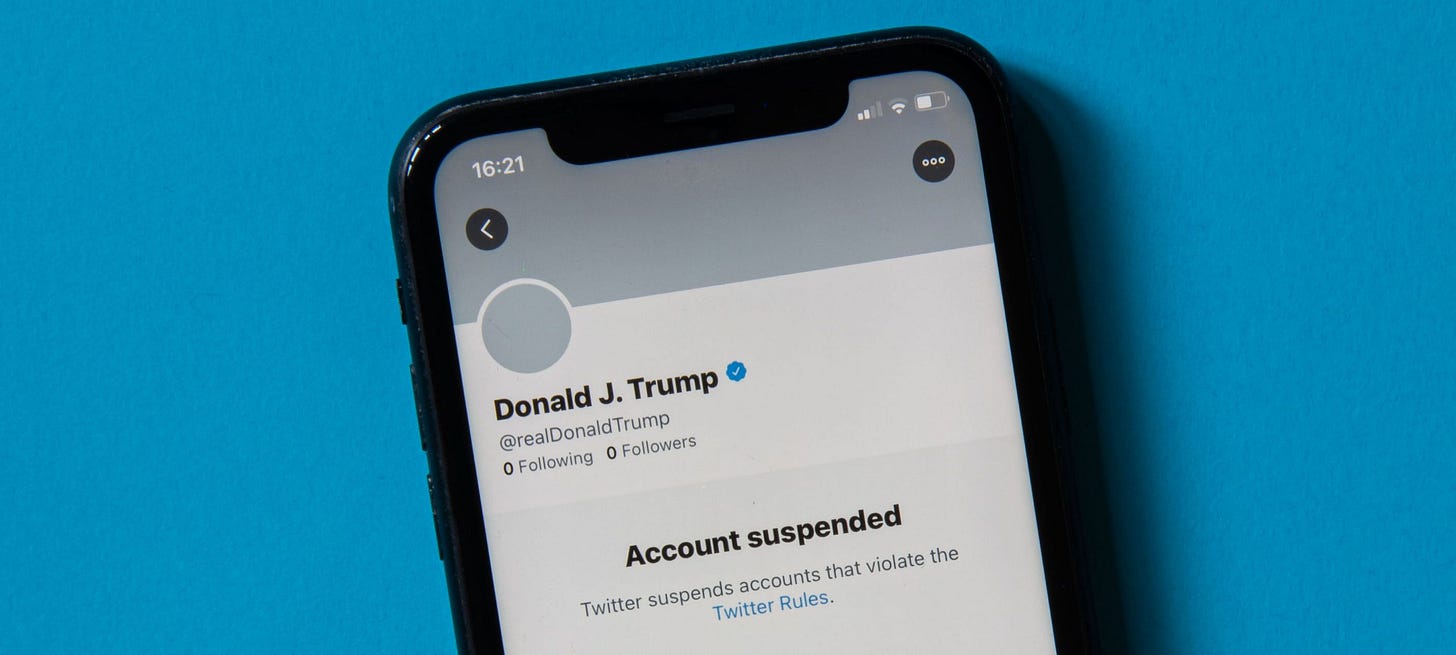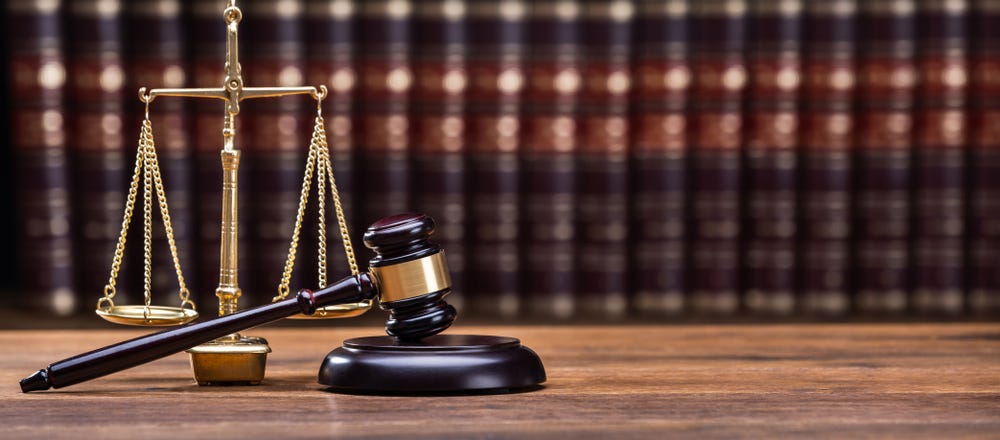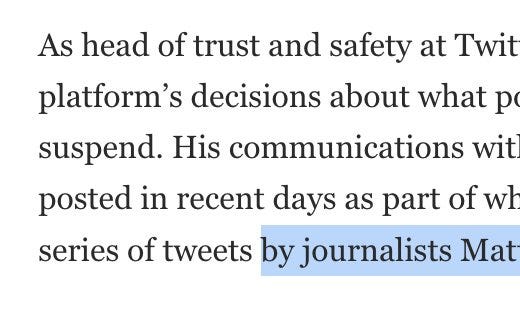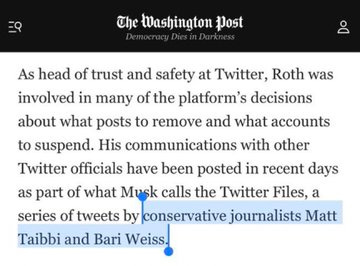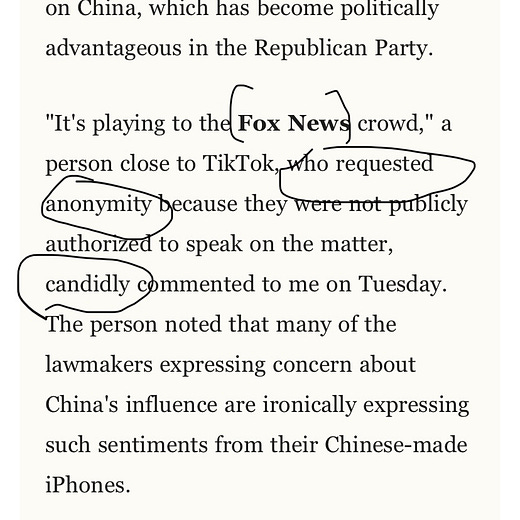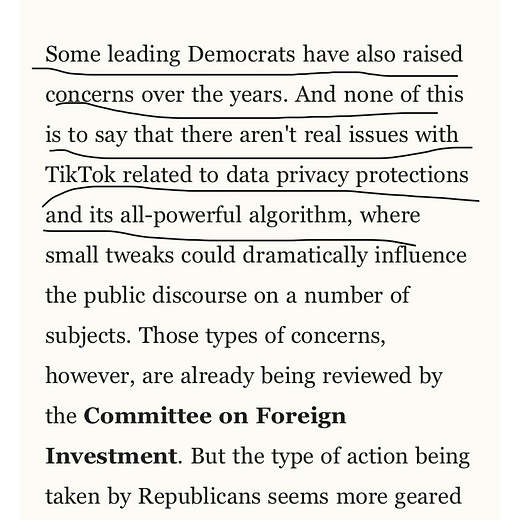E-Pluribus | December 14, 2022
Government censorship once removed; censorship as crime; and when the rule of woke trumps the rule of law.
A round-up of the latest and best writing and musings on the rise of illiberalism in the public discourse:
Robby Soave: Twitter Files: FBI, DHS Reported Tweets for Election Misinformation
Government censorship by proxy? Robby Soave of Reason writes about revelations from the Twitter Files regarding federal agencies’ collaboration with Twitter’s Trust and Safety team.
Notably, Twitter's moderation decisions during this time period increasingly relied on input from the FBI and DHS. In internal Slack conversations, Twitter policy director Nick Pickles floated the idea of publicly admitting that the company's misinformation policies were partly based on feedback from experts in law enforcement; he eventually decided just to call them "partnerships."
Other Slack messages suggest that Roth met regularly, even weekly, with the FBI and DHS. The FBI also reported tweets for spreading election misinformation, sometimes prompting Twitter to take action.
This is the aspect of content moderation that should provoke the greatest concern from the general public. While Twitter's opaque and inconsistent policies are undoubtedly enraging, they are a private company's terms of service; ultimately, users can (and should) complain, and encourage new leadership—i.e. Elon Musk—to change course, but there isn't a strong public policy connection.
Dictates from law enforcement, on the other hand, are absolutely matters of public policy. Is it proper for agents of the state to encourage private entities to suppress misinformation, even as national political figures excoriate these entities for not moderating more aggressively? The First Amendment might have something to say about that.
Read the whole thing.
Philip Hamburger: Is Social-Media Censorship a Crime?
Speaking of censorship by proxy, Philip Hamburger at the Wall Street Journal discusses the possibility of criminal civil rights violations as a result of government involvement in social media “moderation”.
Will there be legal consequences for government officials, for the companies, or for their personnel who cooperate in the gov-tech censorship of dissent on Covid-19, election irregularities or other matters? Cooperation between government officials and private parties to suppress speech could be considered a criminal conspiracy to violate civil rights. The current administration won’t entertain such a theory, but a future one might.
[ . . . ]
Because the First Amendment doesn’t bar private parties from independently suppressing speech, Section 241 would apply to tech censorship only if government officers, acting as part of a conspiracy, have violated the Constitution. Doctrine on Section 241 requires this underlying constitutional violation to be clear. But clarity isn’t elusive. The type of suppression most clearly barred by the First Amendment was the 17th-century English censorship imposed partly through cooperative private entities—universities and the Stationers’ Company, the printers trade guild.
Government remains bound by the First Amendment even when it works through private cutouts. There would be no purpose to a Bill of Rights if government could evade it by using private entities to do its dirty work. As the Supreme Court put it in Frost & Frost Trucking Co. v. Railroad Commission (1926), “It is inconceivable that guaranties embedded in the Constitution of the United States may thus be manipulated out of existence.”
The First Amendment’s text confirms the unconstitutionality of such workarounds. Any “prohibiting” of the free exercise of religion violates the amendment. In contrast, a mere “abridging” of the freedom of speech is unconstitutional. The government thus violates the latter merely by abridging or reducing it.
Read it all here.
Frances Widdowson: The Woke Academy’s Rejection of the Rule of Law
Cancel culture at universities is bad enough, but Frances Widdowson at Minding the Campus makes the case that woke behavior by college administrators amounts to a rejection of the rule of law. Widdowson draws on her own experiences to illustrate how rights can be trampled when the university has what it considers loftier goals in mind.
Two of the most significant elements of the rule of law are legal equality and “no punishment without law.” Equality under the law ensures that powerful members of society, especially those in official positions, are not “above the law” and are unable to coerce people for simply having a dissenting position. “No punishment without law” is an equally important feature because it checks arbitrariness. With the rule of law intact, anything that is not prohibited by law is permissible, and any violations of the law must be responded to with a recognized procedure. Without these clearly defined parameters, members of society are afraid to do or say anything, as it may provoke the wrath of the authorities. “Better safe than sorry” is the motto in such circumstances; people become reluctant to state what they believe when it challenges the “politically correct” dogma.
In modern universities, the self-censorship and intolerance of dissent that Krylov details are directly related to the disintegration of the rule of law. I have witnessed this personally at Mount Royal University (MRU), where I was eventually fired from a tenured position in December 2021 after being subjected to a number of star chamber investigations. In these inquisitions, funded and controlled by MRU, I got to see first hand how the corrosion of the rule of law enables totalitarian impulses to gain a foothold.
[. . .]
In my final disciplinary meeting with the acting provost, she asserted that I needed to “accept responsibility” and “show remorse” for my conduct. I replied that I could not accept responsibility for a rule that I did not know existed, and that remorse was not possible because I was merely defending myself from a mob that was trying to get me fired. My reasoning, which I clearly articulated over and over again for almost an hour, was completely ignored. MRU’s termination letter, compiled one week later, included the following two “examples” for why my employment relationship had been made unviable: “You have indicated that you will not take responsibility for your conduct” and “You have indicated that you have no remorse for your conduct.”
Read it all.
Around Twitter
To some in the media, “conservative” is clearly pejorative:
Here are excerpts from a thread by conservative journalist (just kidding, see Tweet above) Noah Smith with some optimism regarding a Musk-Twitter future:
And finally, a journalist using the words “requested anonymity” and “candidly commented” in the same sentence raises concerns for the state of the profession:




